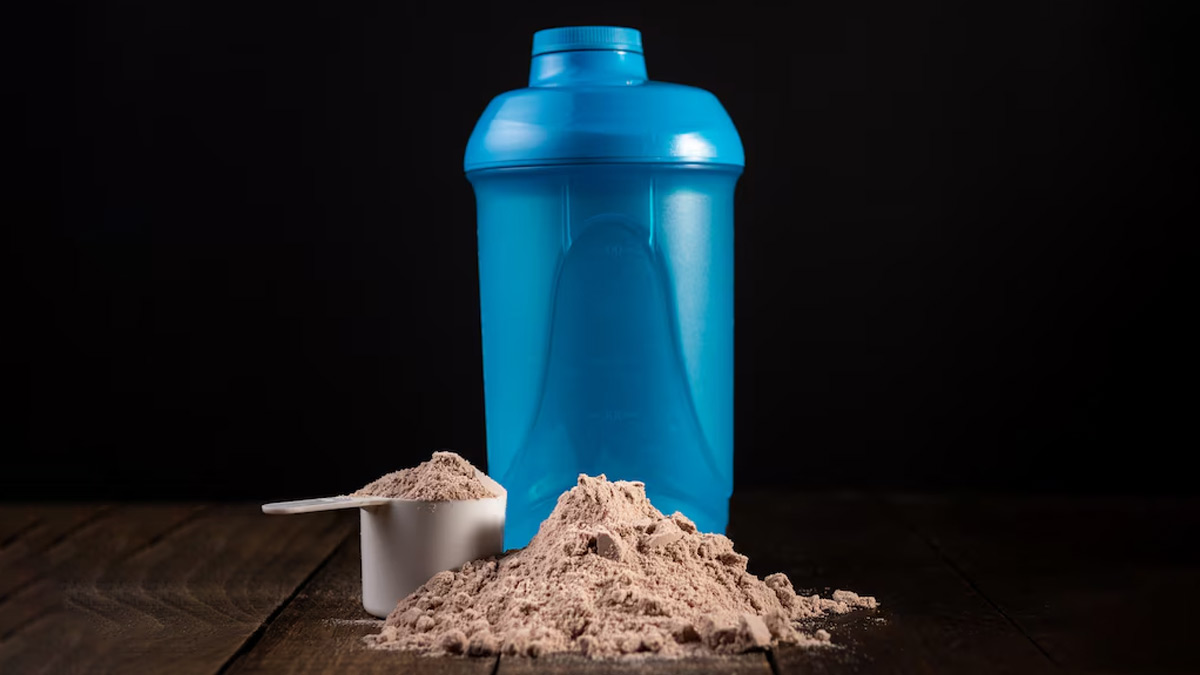
In recent years, protein supplements have surged in popularity, especially among fitness enthusiasts and young adults aiming to build muscle mass. However, the Indian Council of Medical Research (ICMR) National Institute of Nutrition (NIN) has raised red flags regarding the potential health risks associated with these supplements, urging caution in their consumption.
Table of Content:-
ICMR Dietary Guidelines
ICMR's comprehensive guidelines, spanning 148 pages, delve into the dangers posed by protein supplements. These risks include kidney damage, dehydration, and nutrient imbalances. While protein supplements promise enhanced athletic performance and muscle growth, they come with a suite of potential health hazards that individuals should be aware of.

The Pitfalls of Protein Overload
One of the primary concerns highlighted by ICMR is the strain excessive protein intake places on the kidneys. High levels of protein, particularly from supplements, can overwork the kidneys, potentially leading to long-term damage, especially in individuals with pre-existing kidney conditions.
Moreover, protein metabolism necessitates increased water consumption to flush out urea, a by-product of protein breakdown. Failure to maintain adequate hydration levels can result in dehydration, adversely affecting overall health and physical performance.
Digestive Discomfort and Nutritional Imbalances
Beyond kidney and hydration concerns, protein supplements can also cause digestive issues like bloating, gas, or diarrhoea, particularly for those sensitive to certain proteins or additives. Additionally, relying solely on supplements for protein needs may create nutritional gaps, as whole food sources offer a broader spectrum of essential nutrients vital for overall health.
Weight Woes and Allergic Risks
Contrary to their weight-loss or muscle-gain claims, excessive protein intake from supplements can lead to weight gain if calorie intake exceeds expenditure. Furthermore, individuals with food allergies or sensitivities face the risk of allergic reactions to certain protein sources present in supplements, necessitating careful consideration before consumption.
Contamination and Hormonal Disruption
Another concern raised by ICMR is the potential contamination of protein supplements with harmful substances like heavy metals or pesticides, posing significant health risks. Additionally, supplements containing added hormones or hormone-like compounds can disrupt the body's hormonal balance, potentially leading to various health issues.
Also Read: Protein Supplements: Debunking The Top Myths

A Balanced Approach to Protein Intake
In light of these risks, ICMR advocates for a balanced approach to protein intake, emphasising the consumption of protein-rich whole foods like lean meats, legumes, and dairy products. This approach not only ensures adequate protein intake but also promotes overall nutritional balance and well-being. According to the Harvard TH Chan School of Public Health, the sources of protein are:
Animal-Based Protein
- Lean meats such as chicken breast, turkey, and lean cuts of beef or pork.
- Fish and seafood, including salmon, tuna, trout, shrimp, and mussels.
- Eggs, particularly egg whites are high in protein and low in fat.
- Dairy products like Greek yoghurt, cottage cheese, milk, and cheese.
Plant-Based Protein
- Legumes such as lentils, chickpeas, black beans, and kidney beans.
- Tofu and tempeh, which are soy-based products rich in protein.
- Edamame (young soybeans), a nutritious snack or addition to salads.
- Quinoa is a pseudo-grain that is a complete protein source.
- Nuts and seeds like almonds, peanuts, chia seeds, and hemp seeds.
- Whole grains such as oats, brown rice, barley, and whole wheat products.
Processed Protein Sources
- Protein powders derived from whey, casein, soy, or pea protein.
- Protein bars and shakes are marketed as convenient sources of protein.
Other Protein-Rich Foods
- Seitan is a meat substitute made from wheat gluten.
- Spirulina and other algae are rich in protein and various nutrients.
- Nutritional yeast is often used as a cheese substitute and is high in protein.
Also Read: Protein Supplements vs Natural Sources: Which Is The Best Protein Source For Building Muscles?
Including a variety of these protein sources in your diet can help ensure you meet your daily protein requirements while also benefiting from a range of essential nutrients. While protein supplements may offer convenience and purported benefits, their unchecked consumption can lead to a host of health problems. It's essential to heed ICMR's warnings and prioritize a balanced diet comprising natural protein sources to safeguard long-term health and well-being.
Also watch this video
How we keep this article up to date:
We work with experts and keep a close eye on the latest in health and wellness. Whenever there is a new research or helpful information, we update our articles with accurate and useful advice.
Current Version